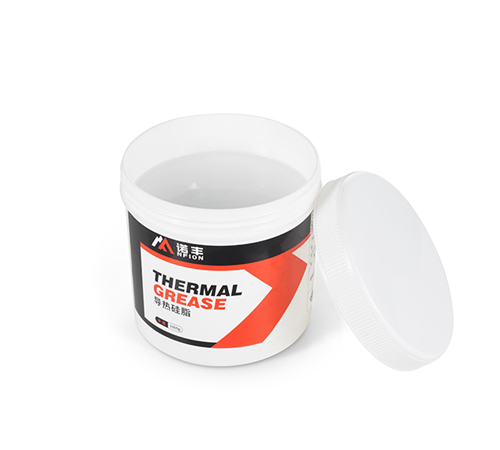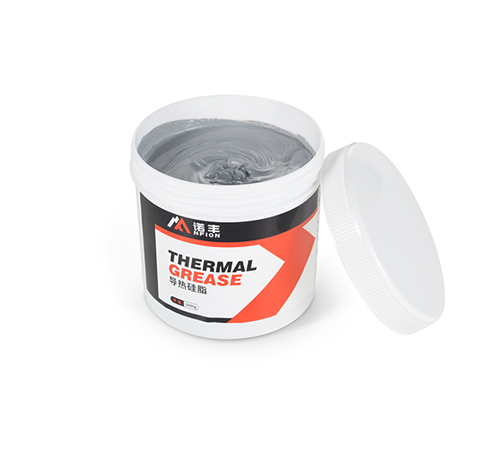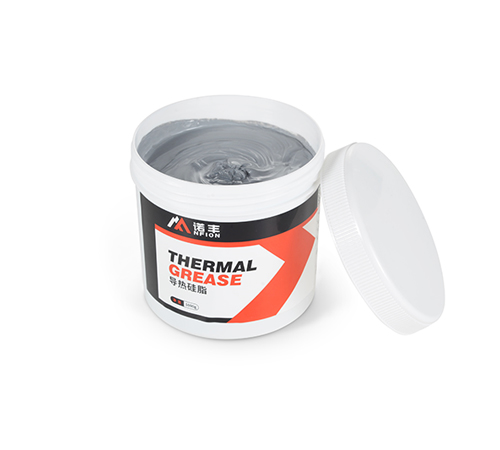With the growing global demand for renewable energy, energy storage technology has become a crucial part of energy management. In energy storage systems, inverters serve as key equipment to convert DC power to AC power, or vice versa. However, the high power density design and high-frequency operation of inverters generate significant heat, and excessive temperature can damage internal components, reducing the lifespan and efficiency of the device. Therefore, heat dissipation management is a core issue in ensuring the stable operation of inverters. Thermal grease, as an efficient thermal conductive material, plays an irreplaceable role in addressing the heat dissipation challenges of energy storage inverters.
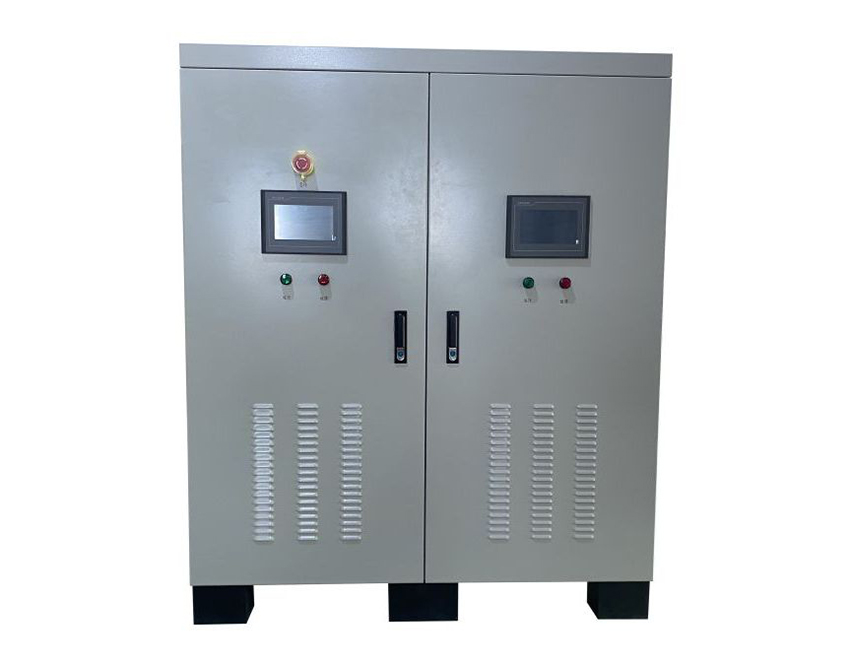
Basic Properties of Thermal Grease
Thermal grease is a thermal interface material made by mixing silicone oil with thermal conductive fillers. It has the following key characteristics:
1. Excellent thermal conductivity: Thermal grease contains high thermal conductivity fillers such as aluminum oxide, boron nitride, carbon nanotubes, etc., which can quickly transfer heat and reduce the thermal resistance between electronic components and heat sinks.
2. Low volatility and high stability: Due to its silicone-based properties, thermal grease exhibits extremely low volatility in high-temperature environments and remains chemically stable over long-term use, making it suitable for long-term operation under high temperatures.
3. Good electrical insulation: While providing efficient thermal conductivity, thermal grease maintains electrical insulation, preventing short circuits and other problems.
4. Softness and low adhesion: It can effectively fill micro gaps, ensuring efficient heat transfer between components and heat sinks, while also being easy to apply and maintain.
These characteristics make thermal grease an important material for heat management in power devices.
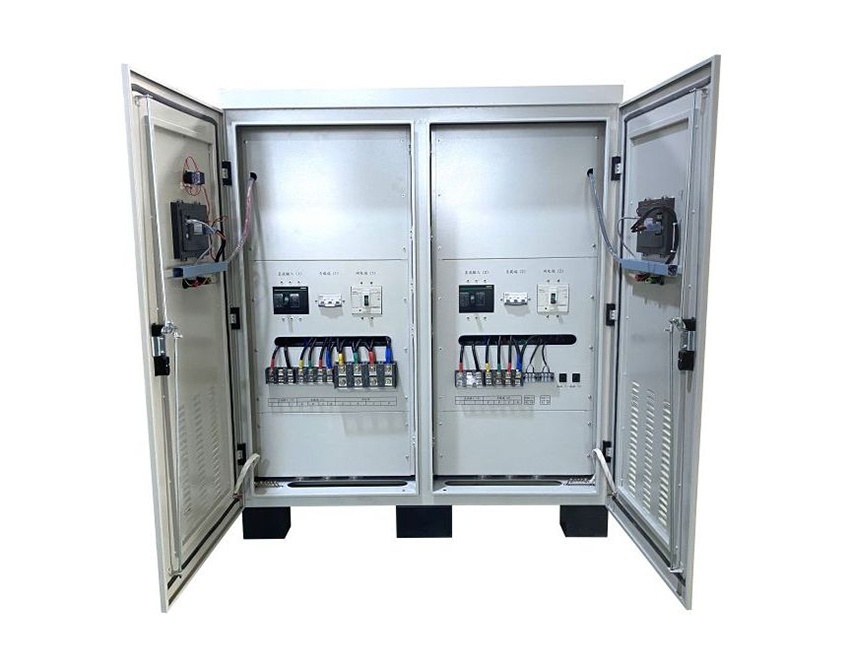
Thermal Management Challenges in Energy Storage Inverters
Energy storage inverters typically operate at high power levels, and continuous operation over time leads to significant heat accumulation. The main heat sources include power semiconductor devices (such as IGBTs, MOSFETs), inductors, and other high-frequency components. Without effective heat dissipation, the temperature of components will rise significantly, leading to the following issues:
1. Component damage: Excessive temperature can lead to thermal failure of electronic components, such as the breakdown of semiconductor materials or the aging and cracking of packaging materials.
2. Efficiency reduction: Heat accumulation increases internal losses of the components, reducing the inverter’s conversion efficiency.
3. Shortened device lifespan: Operating at high temperatures for extended periods significantly reduces the lifespan of electronic components, increasing system maintenance costs.
Thus, heat dissipation management is crucial in the design of energy storage inverters.
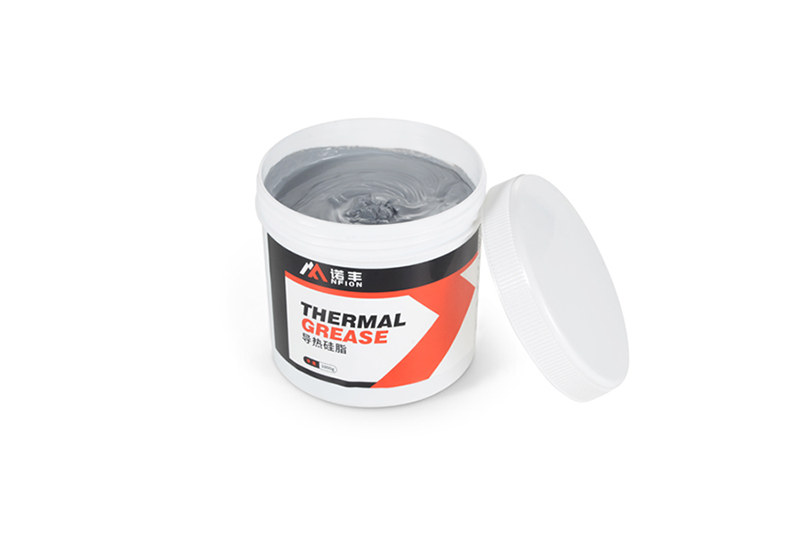
Advantages of Thermal Grease in Energy Storage Inverters
1. Improved Heat Dissipation Efficiency for System Stability
Thermal grease forms an efficient thermal transfer channel between power semiconductor devices (such as IGBT modules) and heat sinks by filling the micro gaps between them, reducing contact thermal resistance. By improving heat dissipation efficiency, thermal grease effectively controls the temperature rise of power devices, allowing the inverter to operate stably under high loads and preventing shutdowns or failures due to overheating.
2. Enhanced System Efficiency and Reduced Energy Loss
The temperature rise in inverters increases the switching and conduction losses of power devices. By rapidly transferring heat to heat sinks, thermal grease helps lower the operating temperature of components, reducing energy losses caused by heat. Lower operating temperatures can improve the overall conversion efficiency of the inverter, reducing unnecessary energy consumption.
3. Extended Device Lifespan and Reduced Maintenance Costs
Temperature control is critical to the lifespan of power semiconductor devices. By optimizing heat dissipation management with thermal grease, the internal components of the inverter can maintain a safe operating temperature, reducing the impact of high temperatures on component lifespan. Longer operational stability means a lower failure rate, which reduces the frequency of maintenance and component replacement, ultimately lowering system maintenance costs.
4. Electrical Insulation for System Safety
While providing excellent thermal conductivity, thermal grease also offers outstanding electrical insulation properties. This is crucial for high-voltage equipment like inverters, preventing electrical short circuits between power devices or heat sinks, thus ensuring system safety and reliability.
Future Developments and Challenges
Although thermal grease is widely used in energy storage inverters, the performance requirements for thermal materials are continuously increasing with the advancement of energy storage technology. Future thermal greases will need to improve in the following areas:
1. Higher thermal conductivity: As the power density of inverters increases, thermal grease will need higher thermal conductivity to meet the growing heat dissipation demands.
2. Long-term stability: Over time, thermal grease may dry out or seep due to thermal cycling, so more durable formulations are needed to ensure long-term thermal performance and stability.
3. Environmental sustainability: With increasing environmental concerns, future thermal greases will need to minimize environmental impact, potentially developing biodegradable or recyclable products to meet market demands.
Conclusion
As an efficient thermal interface material, thermal grease plays a vital role in the thermal management of energy storage inverters. By improving heat dissipation efficiency, ensuring equipment stability, reducing energy consumption, and lowering maintenance costs, thermal grease helps inverters operate safely under high temperatures and high voltages. As energy storage technology continues to develop, the performance of thermal grease will further improve to meet new thermal management challenges and advance inverter technology.



 CN >
CN >
